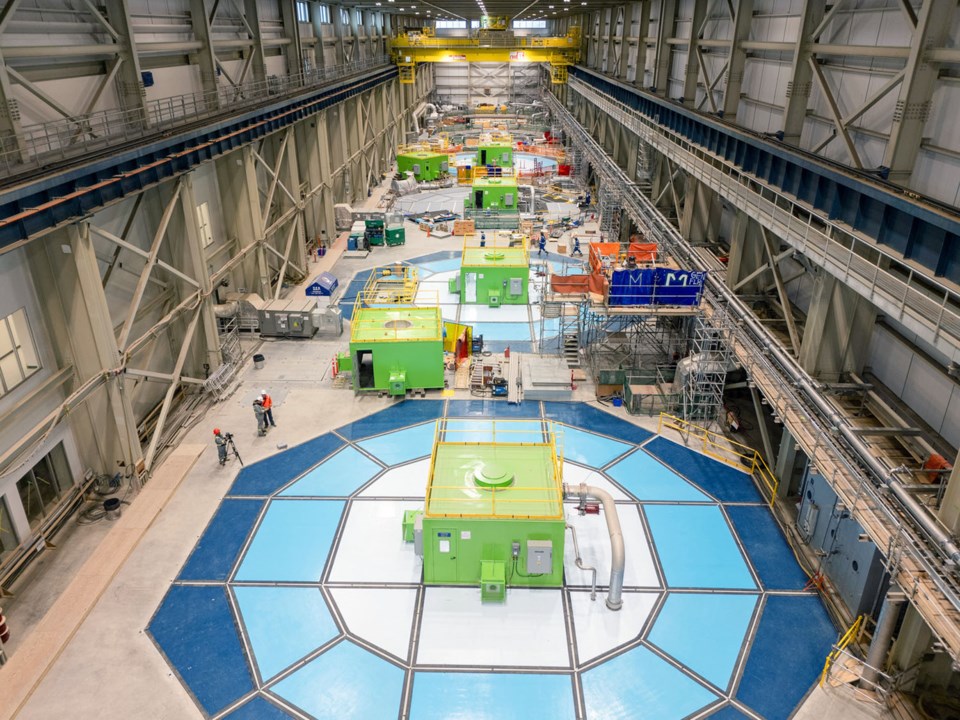A cross-border economic clash between Canada and the U.S. could expose B.C.’s housing sector to some concerning cracks in the foundation, according to one economist.
“I don’t think getting into a trade war with the United States is going to help the economy either in Canada and certainly not in British Columbia, because that’s a war we will lose,” says Jock Finlayson, chief economist with the Independent Contractors and Businesses Association (ICBA).
“They are 10 times larger than we are, and we are far more dependent on their market than they are on ours, so it’s a very lopsided equation.”
He said if Canada imposes retaliatory tariffs on construction inputs and building materials, the cost of residential construction would climb in B.C. and negatively affect homebuilding and affordability levels.
Residential building in B.C. is already sluggish due to permitting delays, regulatory complexity and other hurdles, and a trade conflict with Canada’s largest trading partner could further depress the sector, Finlayson told BIV.
He said U.S. tariffs on Canadian goods are bad for all industries in B.C. that depend on selling into the American market. And while there might be political pressure on Canadian leaders to respond in kind, tariffs on U.S. imports would be another source of pain.
“If those tariffs are applied to building materials and other construction inputs that we source from the United States, like wire and steel and other specialized components for building products, then that will actually drive up building costs here, which is the last thing we want to do,” he said.
While U.S. tariffs have already been baked into a weaker loonie, there could still be more downside that would be inflationary in nature, leading to higher interest rates and borrowing costs than the province would otherwise see.
“There’s a bit of an offset there, because a cheaper Canadian dollar will help our export sectors at the margin cushion some of the blow of U.S. tariffs, but generally speaking, an escalating trade conflict with the United States, there’s no way to spin that in a positive direction in terms of the economy or investment,” Finlayson said.
In a recent analysis, the ICBA economist examined provincial building permit data, finding high volatility and recent weakness. Building permit values, which accompany building permit applications and estimate the cost of construction, have risen due to strong population growth and public spending, but could fall as several mega-projects wind down, including BC Hydro’s Site C dam, the LNG Canada facility in Kitimat, the Coastal GasLink pipeline and the Trans Mountain expansion project.
“Those four together, all sort of energy-related projects, have amounted to almost $100 billion of capex [capital expenditure] since 2016, and in the case of TMX, it’s already ended but the other three will wind up this year,” Finlayson said.
“We’re going to see quite a big fall-off in what I would describe as industrial and engineering capital spending in B.C., and that will show up in weaker building permits going forward.”
To help boost dwelling unit construction, he suggested that governments accelerate approval timelines, more evenly distribute infrastructure costs beyond new build, temporarily moderate immigration to achieve more equilibrium, and concentrate new population growth outside of major metropolitan regions.
“It takes longer to get approvals and build a 10-storey apartment building in Vancouver than it did to fight and win the Second World War. It just doesn’t make a lot of sense,” Finlayson said.
“Governments are trying to ramp up homebuilding and housing supply with a mix of sticks and carrots. And maybe that’ll work over time, but in the here and now, it’s a strategy that isn’t delivering in a significant way.”
As of November 2024, the value of building permits issued year-to-date in British Columbia was 8.2 per cent lower than during the same 11-month period in 2023, according to ICBA and Statistics Canada. New data for December 2024 shows a 29-per-cent uptick month-over-month, underscoring the volatile nature of monthly building permit data.




